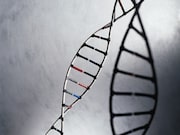NIH oversight panel no longer plans to review all applications for gene therapy experiments
FRIDAY, Aug. 17, 2018 (HealthDay News) — A U.S. National Institutes of Health oversight panel will no longer review all applications for gene therapy experiments. Instead, the panel will assume an advisory role, while the U.S. Food and Drug Administration will assess gene therapy experiments and products as it does with other treatments and drugs. The proposed change will take effect after a public comment period which runs through Oct. 16.
A number of independent experts agree with the change.
“This is something the FDA has the tools to handle. I don’t think this is somehow a massive deregulation,” Leigh Turner, Ph.D., from the University of Minnesota Center for Bioethics in Minneapolis, told the Associated Press. “We never want to become blasé or cavalier about gene therapy clinical trials. Careful scrutiny, whether by one body or two, is as important as ever.”
The change is consistent with recommendations made several years ago by the Institute of Medicine, according to Jeffrey Kahn, Ph.D., M.P.H., director of the Bioethics Institute at Johns Hopkins University in Baltimore. “We have mechanisms in place to protect patients,” he told the AP. “It doesn’t need to be treated as a special case of clinical research any longer.”
However, other experts have concerns.
With gene editing and other new techniques on the horizon, “this is not the right time to be making any moves based on the idea that we know what the risks are,” Mildred Cho, Ph.D., a bioethicist at the Stanford Center for Biomedical Ethics in California, told the AP. Gene therapies are biologically complex treatments, and “we really don’t understand how they work,” in many cases, Cho said. “There are miraculous recoveries and remissions that we haven’t seen before but there also are very spectacular failures.”
AP News Article
NIH Statement
Comment on Regulations
Copyright © 2018 HealthDay. All rights reserved.








